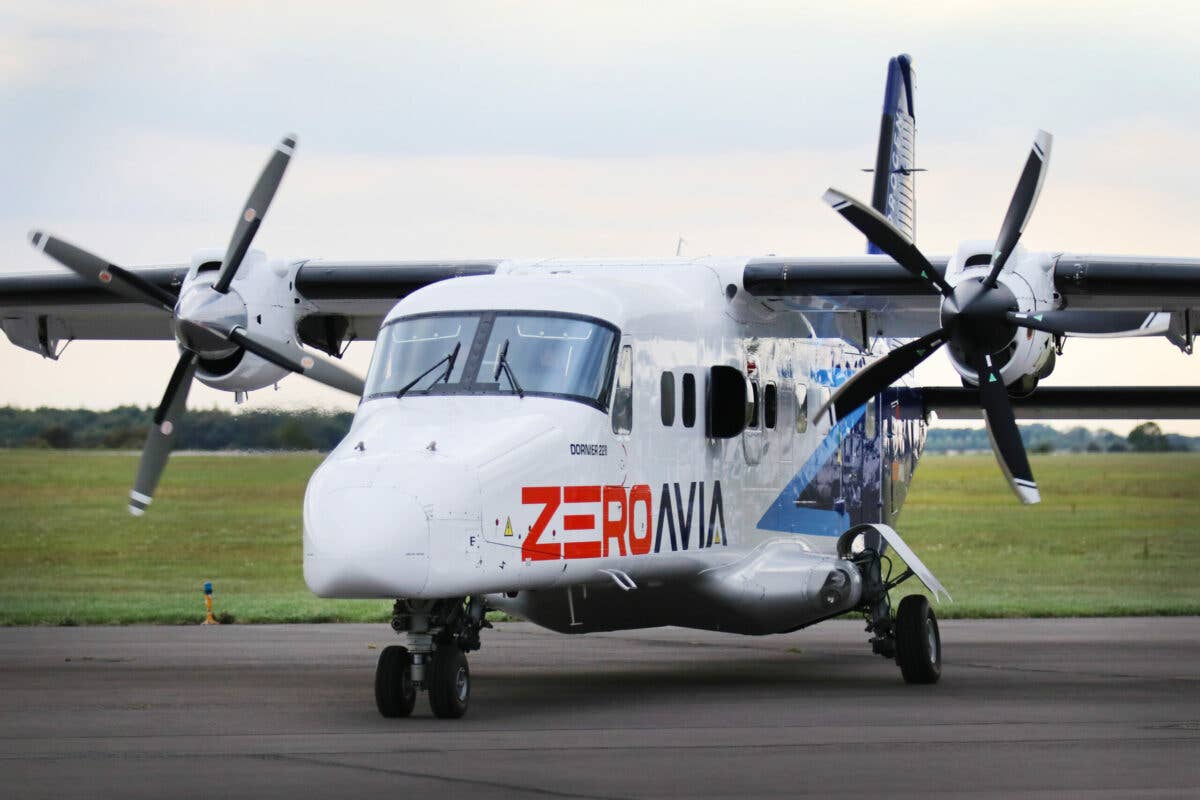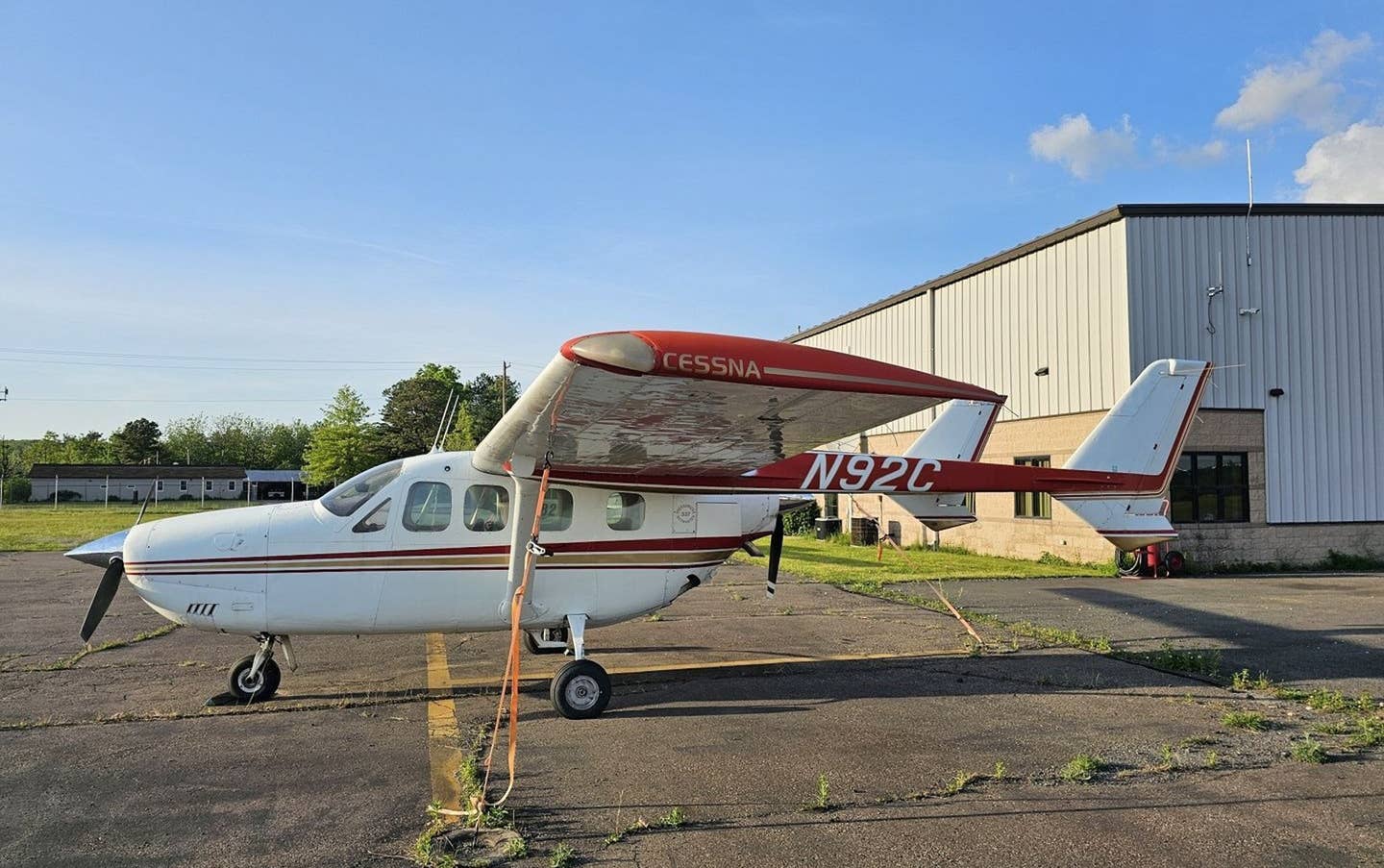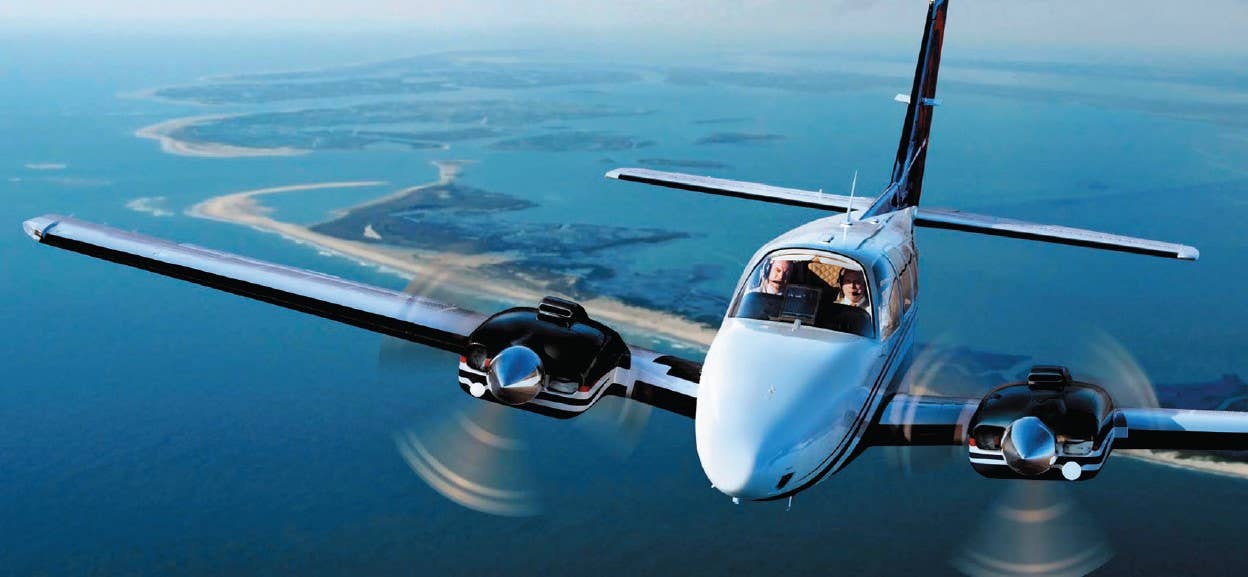ZeroAvia, AGS Airports Enter Hydrogen Fuel Partnership
Under the agreement, the European airport operator and ZeroAvia will explore developing hydrogen fuel infrastructure and launching zero-emission routes.

ZeroAvia and AGS Airports have established an agreement to explore the development of infrastructure. [Courtesy: ZeroAvia]
ZeroAvia, one of the leaders in the quest for zero-emission solutions for commercial aviation and AGS Airports have established an agreement to explore the development of infrastructure that will allow hydrogen fuel for aircraft traveling between Aberdeen and Glasgow airports.
AGS, based in the U.K., owns and operates Aberdeen, Glasgow, and Southampton airports. The team is working closely with ZeroAvia’s specialist airport infrastructure team to assess the opportunities for hydrogen production onsite, as well as establishing commercial air routes.
In the meantime, ZeroAvia is developing hydrogen-electric aviation solutions to address a variety of markets, initially targeting a 300-mile range in 9 to 19-seat aircraft by 2025 and up to a 700-mile range in 40 to 80-seat aircraft by 2027.
According to the company, switching some routes to aircraft powered by ZeroAvia’s hydrogen-electric powertrain will help AGS Airports to significantly reduce Scope 3 carbon emissions from aircraft and reduce noise and air quality impacts locally.
“The development of hydrogen powered aircraft has the potential to completely revolutionize aviation, and it is becoming an increasingly viable option for regional and short-haul aircraft," said Derek Provan, chief executive of AGS Airports. "As a regional airport group serving the Highlands and Islands of Scotland as well as the Channel Islands from Southampton, AGS will be the perfect testbed for hydrogen flight. Through our partnership with ZeroAvia, we’ll address some of the challenges associated with the generation, delivery, and storage of hydrogen on-site and how we can prepare our infrastructure to support zero emission flights.”
AGS is also exploring how hydrogen can be used to remove emissions across ground operations, further extending the impact.
ZeroAvia plans to share its experience in developing and operating its Hydrogen Airport Refuelling Ecosystem (HARE) at Cotswold Airport in Gloucestershire. The partners will work towards a flight demonstration powered by ZeroAvia’s ZA600 600kW hydrogen-electric engine, which is on a path towards certification by 2025, with commercial routes from Glasgow, Scotland’s biggest city, to follow soon after.
Aircraft relevant to ZeroAvia’s ZA600 engine already operate from Glasgow, and there is a potential to expand zero-emission flights across the AGS group to Aberdeen and Southampton.
“In recent months, we have stepped up our work with airports significantly to better understand the operational needs and requirements for hydrogen as a fuel," said Arnab Chatterjee, vice president of infrastructure at ZeroAvia. "Working with the team at AGS allows us to plan for some of the commercial routes that we will be able to support in a little over two years’ time, and do so in the setting of a major international airport.”
ZeroAvia states these efforts will help AGS Airports reach zero carbon emissions by the middle of next decade, adding, "Given the reduced operating costs and lower noise profile offered by hydrogen-electric engines, operating more flights becomes attractive and can thus boost regional economic growth."
The ZA 600
The ZA600 is a hydrogen-electric engine designed to power 9- to 19-seat aircraft up to 300 nm. Hydrogen-electric engines use hydrogen in fuel cells to generate electricity, which is then used to power electric motors to turn the aircraft’s propellers, with the only byproduct being water. The ZA600 will soon be flight tested for the first time in a 19-seat Dornier 228.
ZeroAvia’s infrastructure team is working with airports and other partners to deliver last-mile hydrogen delivery and refueling infrastructure to support airline operators, supported either by upstream fuel supplier partnerships or building of distributed production infrastructure.

Subscribe to Our Newsletter
Get the latest FLYING stories delivered directly to your inbox






